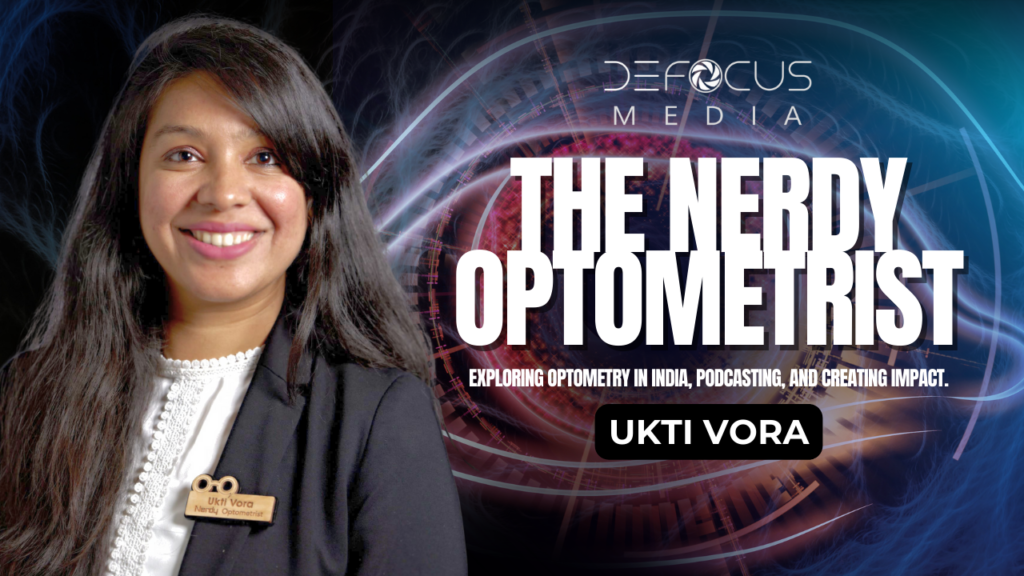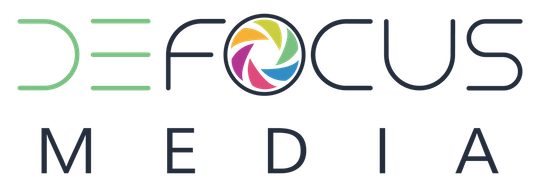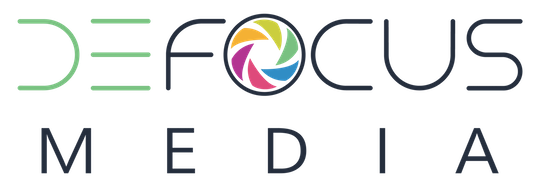Podcast: Play in new window | Download
Subscribe: Apple Podcasts | Spotify | Amazon Music | Android | RSS
Prepare for a captivating journey exploring optometry with the Nerdy Optometrist, Ukti Vora. In this episode, we’ll discuss Ukti Vora’s story, tracing her path from India to the United States and uncovering the exciting world of optometry. From discussing optometry in India to revealing opportunities beyond the exam lane in the United States, this conversation promises to be an eye-opening experience.
But that’s not all! We’ll also explore the incredible impact of her podcast, “The Nerdy Optometrist,” which has built a global community of eye care professionals. Plus, get ready to glimpse into the future of optometry, as we discuss exciting developments and trends that might open up new and unexpected paths for optometrists. If you’re intrigued by the world of eye care and eager to explore non-traditional career paths, this podcast is your gateway to an exciting and informative journey.

What’s Covered:
Ukti Vora’s Journey into Optometry
Dr. Darryl Glover:
I’d love for you to share a bit about yourself, such as where you’re from and what led you to eye care. Would you mind, my friend?
Ukti Vora:
Originally from India, I pursued my optometry degree there, interestingly, without initially knowing much about the field. It was purely by chance that I stumbled upon optometry. A friend was considering it for her career; she eventually chose a different path, but that conversation caught my parents’ attention. They thought it sounded like an intriguing profession.
What does Optometry in India look like?
Dr. Darryl Glover:
I understand. I’m curious to learn more about the field of optometry in India. Many of our listeners are familiar with how it’s practiced in the United States but might not know what it’s like in other parts of the world. I’ve had the chance to practice in Nigeria myself.
Ukti Vora:
Absolutely. It’s important to note that my perspective is based on my experiences until eight years ago, when I moved to the United States. So, my insights into the current state of optometry in India might be somewhat dated. Initially, optometry in India involved a four-year program after which you could start practicing. Most optometrists worked in multi-specialty hospitals alongside doctors or ran their own retail practices, focusing mainly on dispensing glasses and contact lenses.
A few optometrists ventured into specialties, which was less common due to limited exposure and resources. However, the landscape has dramatically transformed since then. Many professionals who studied abroad have returned to India, significantly enhancing the standards and practices in optometry. Now, there are more specialty clinics and research opportunities, with some practitioners even aligning with global standards set by organizations like the American Academy of Optometry.
One of the unique aspects of practicing optometry in India is the sheer volume of clinical cases due to the large population. This exposure is invaluable and offers a depth of clinical experience that’s rare elsewhere. However, the scope for prescribing medications as an optometrist in India is limited, with a focus more on areas like myopia management, specialty contact lenses, and vision therapy, among others.
Dr. Darryl Glover:
What does the scope of full optometry practice look like there? Are there significant restrictions on prescribing medications?
Ukti Vora:
In terms of clinical practice, fields like low vision, specialty contact lenses, and vision therapy are well-developed. However, the prescription of topical or oral medications generally falls under the ophthalmologists.
What is a Major Challenge for Optometry in India?
Dr. Darryl Glover:
What would you say is a major challenge for optometry in India?
Ukti Vora:
A universal challenge, not just in India, is the difficulty of optometrists in charging consultation fees. Many retail chains offer free eye exams consisting of basic autorefractor tests and trial frames. Despite many succeeding, this practice has made it challenging for optometrists to establish independent practices to justify their consultation fees.
How can an Optometrist Licensed in India Practice Optometry in the United States?
Dr. Darryl Glover:
Transitioning a bit, many optometrists from India are curious about practicing in the United States. Could you suggest how one might validate their degree or pursue optometry here?
Ukti Vora:
Indeed, there are options like the advanced standing programs offered by institutions such as New England College of Optometry, SUNY Optometry, the Illinois College of Optometry, and possibly the UAB School of Optometry. These competitive programs, lasting two to three years, require fulfilling prerequisites and are a viable route to practicing optometry in the U.S. However, alternatives like becoming an ophthalmic technician, licensed optician, or contact lens practitioner, demand less rigorous certification. Regardless of the path, the foundational step is securing a valid work visa to be eligible for employment in the U.S.
Tell us about The Nerdy Optometrist Podcast
Dr. Darryl Glover:
Given your unique journey and insights, how did you find your voice as the “Nerdy Optometrist” in the podcasting world?
Ukti Vora:
Podcasting emerged from my desire to share knowledge and experiences within the optometry community. Despite its challenges, especially initially, it has become a platform for connecting professionals and discussing advancements in the field, echoing my passion for optometry beyond clinical practice.
Ukti Vora:
First off, thank you for bringing this up—it’s my favorite topic to discuss. The entire journey into podcasting and the identity of the “Nerdy Optometrist” is deeply connected to my mentor, Dr. Maria Simpalis. After moving to the United States, I longed to contribute to the community that had given me so much. Dr. Simpalis was instrumental in guiding me through my initial uncertainties and suggested I explore podcasting to share my perspective. This new venture appealed to me because it allowed for anonymity and ease; I could focus solely on audio content without appearing on camera.
The naming process was a collaborative effort with my husband, inspired by a podcast named “Mad Feinstein.” We brainstormed various names, starting with “Mad Optometrist” and eventually settling on “Nerdy Optometrist,” which truly resonated with my persona. I’m known among friends as a nerd, albeit not in the conventional sense—I’m keener on learning through interactions than burying myself in books.
The launch of my podcast was supported by a friend from New Zealand, an optometrist and scientist, who agreed to be my first guest. Our initial series aimed to inform Indian optometrists about opportunities worldwide, covering countries like New Zealand, Malaysia, Australia, the UAE, and the UK.
Dr. Darryl Glover:
It’s impressive to see the success of your podcast, especially within the niche of eye care, highlighted by over 20,000 downloads. That’s a testament to the quality and relevance of your content.
Dr. Darryl Glover:
For those interested in joining your podcast as a guest, what’s the best way for them to reach out and collaborate with you?
Ukti Vora:
Anyone looking to connect or participate in the podcast can reach me through various platforms. I’m active on Instagram and LinkedIn under the “Nerdy Optometrist” handle, and my website, www.nerdyoptometrist.com, also features a contact form. I’m readily accessible and eager to engage with potential guests.


